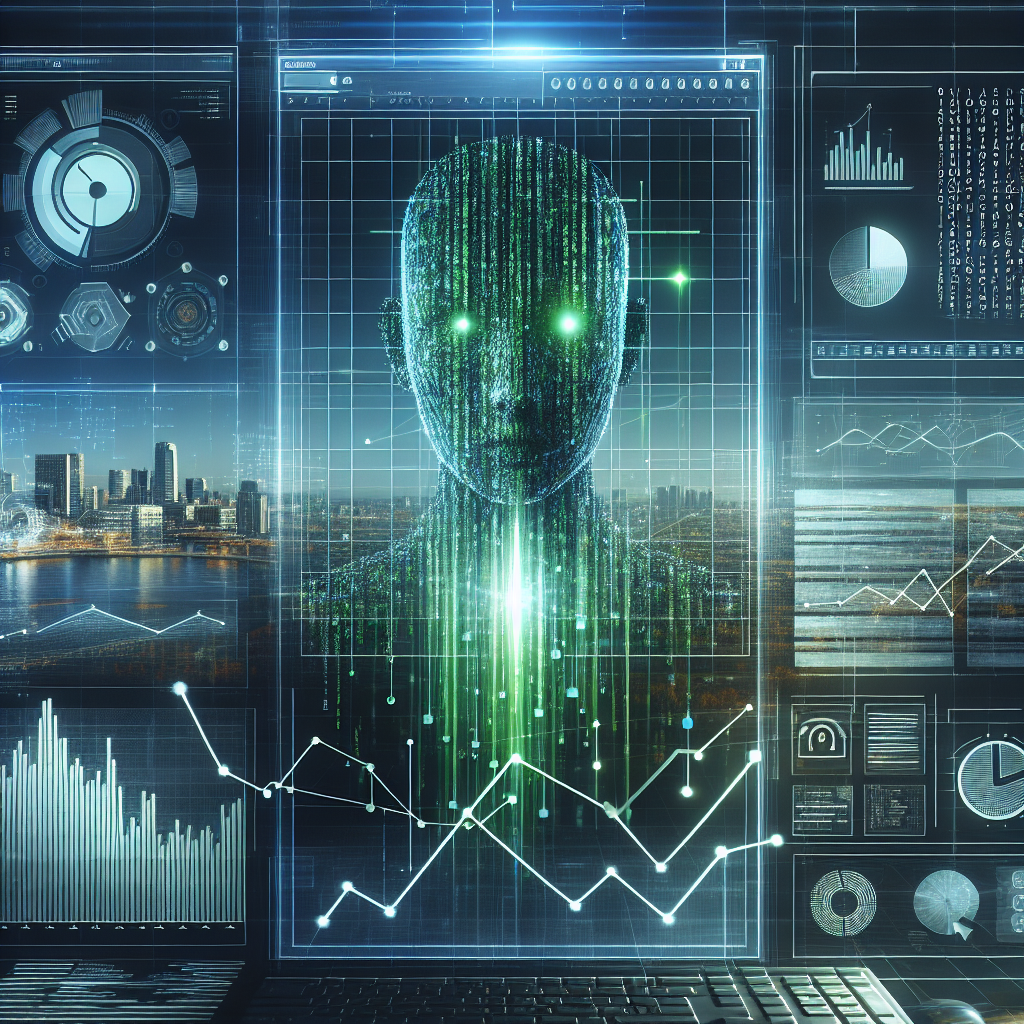Artificial intelligence (AI) has revolutionized many industries, including programmatic advertising. Programmatic advertising is the automated buying and selling of online advertising space, and AI has made this process more efficient and effective than ever before. In this article, we will explore the impact of AI on programmatic advertising and how it is changing the way companies reach their target audiences.
Impact of AI on Programmatic Advertising
1. Targeting and Personalization:
One of the key benefits of AI in programmatic advertising is its ability to analyze vast amounts of data to identify the most relevant audience for a particular ad. AI algorithms can analyze user behavior, demographics, and other data points to create highly targeted advertising campaigns. This not only increases the chances of reaching the right audience but also improves the overall effectiveness of the campaign.
AI also enables personalized advertising, where ads are tailored to the individual preferences and interests of each user. This level of personalization can significantly increase engagement and conversion rates, as users are more likely to respond to ads that resonate with their interests.
2. Real-Time Optimization:
AI-powered algorithms can analyze campaign performance in real-time and make adjustments to optimize results. For example, if a particular ad is not performing well, AI can automatically adjust the targeting parameters or creative elements to improve its effectiveness. This real-time optimization allows advertisers to maximize the impact of their campaigns and achieve better results.
3. Fraud Detection:
Programmatic advertising is vulnerable to ad fraud, where fake clicks or impressions are generated to inflate the performance of an ad. AI can detect and prevent ad fraud by analyzing patterns in user behavior and identifying suspicious activity. This helps advertisers ensure that their ad budgets are not wasted on fraudulent traffic and that their campaigns are reaching real users.
4. Predictive Analytics:
AI can also help advertisers predict future trends and consumer behavior, allowing them to plan their campaigns more effectively. By analyzing historical data and identifying patterns, AI algorithms can forecast which ads are likely to perform well in the future. This predictive analytics can help advertisers stay ahead of the competition and make informed decisions about their advertising strategies.
5. Automation:
One of the key advantages of AI in programmatic advertising is automation. AI-powered platforms can handle the entire ad buying process, from targeting and optimization to reporting and analysis, without the need for human intervention. This automation saves advertisers time and resources, allowing them to focus on other aspects of their marketing strategy.
FAQs
1. How does AI improve targeting in programmatic advertising?
AI algorithms analyze vast amounts of data to identify the most relevant audience for a particular ad. By analyzing user behavior, demographics, and other data points, AI can create highly targeted advertising campaigns that increase the chances of reaching the right audience and improve campaign effectiveness.
2. How does AI optimize ad campaigns in real-time?
AI-powered algorithms analyze campaign performance in real-time and make adjustments to optimize results. For example, if a particular ad is not performing well, AI can automatically adjust the targeting parameters or creative elements to improve its effectiveness. This real-time optimization allows advertisers to maximize the impact of their campaigns and achieve better results.
3. How does AI detect and prevent ad fraud in programmatic advertising?
AI can detect and prevent ad fraud by analyzing patterns in user behavior and identifying suspicious activity. By analyzing data in real-time, AI algorithms can identify fraudulent traffic and prevent advertisers from wasting their ad budgets on fake clicks or impressions.
4. How does AI help advertisers predict future trends in programmatic advertising?
AI algorithms analyze historical data and identify patterns to predict future trends and consumer behavior. By forecasting which ads are likely to perform well in the future, AI helps advertisers stay ahead of the competition and make informed decisions about their advertising strategies.
5. How does AI automate the ad buying process in programmatic advertising?
AI-powered platforms can handle the entire ad buying process, from targeting and optimization to reporting and analysis, without the need for human intervention. This automation saves advertisers time and resources, allowing them to focus on other aspects of their marketing strategy.
In conclusion, AI has had a profound impact on programmatic advertising, revolutionizing the way companies reach their target audiences and optimize their ad campaigns. From targeting and personalization to real-time optimization and fraud detection, AI has transformed the advertising industry and continues to drive innovation in this space. As AI technology continues to evolve, we can expect even more advancements in programmatic advertising that will further improve campaign effectiveness and ROI.

